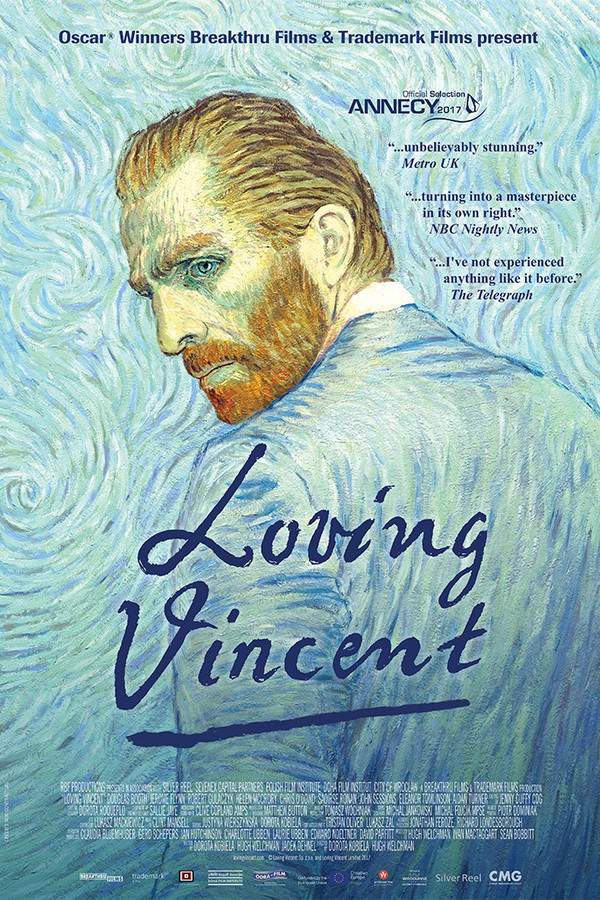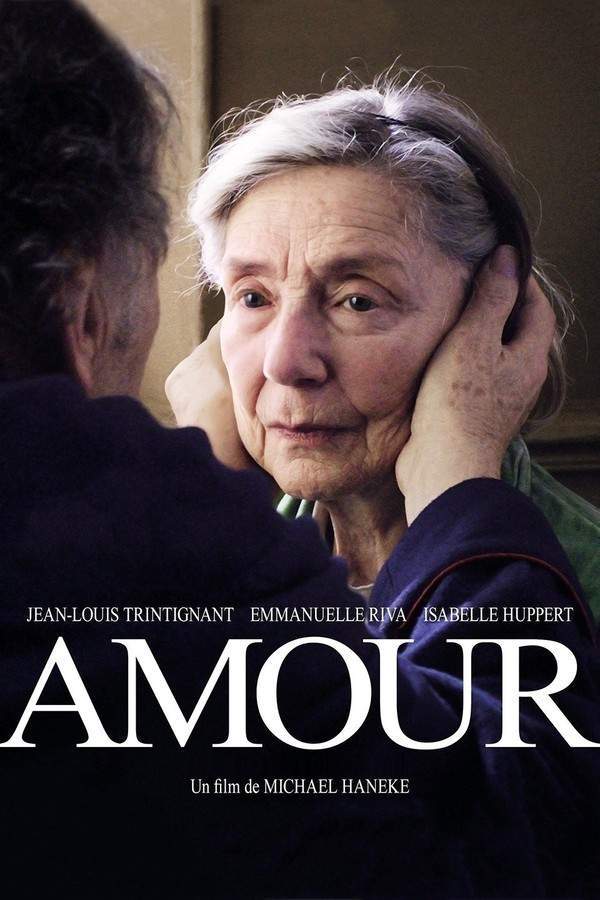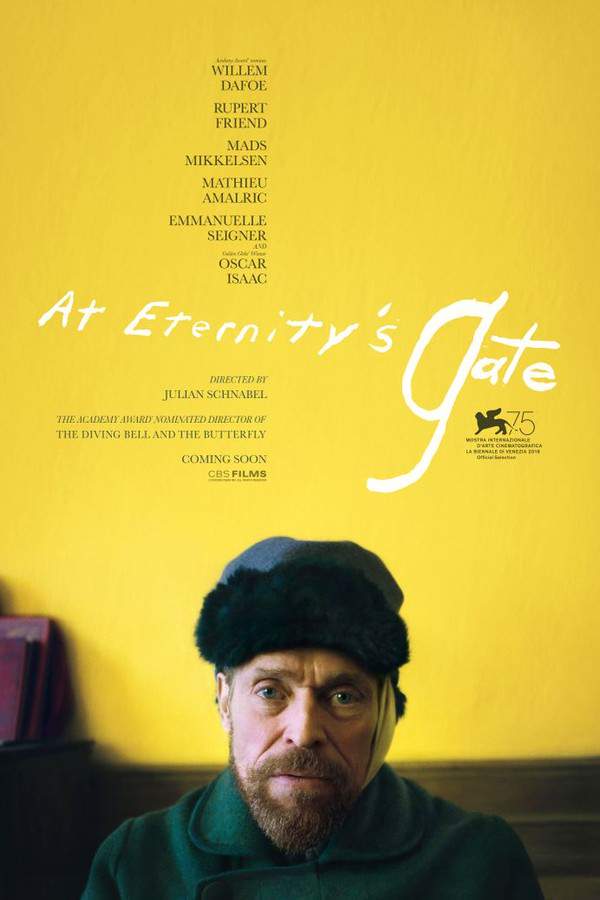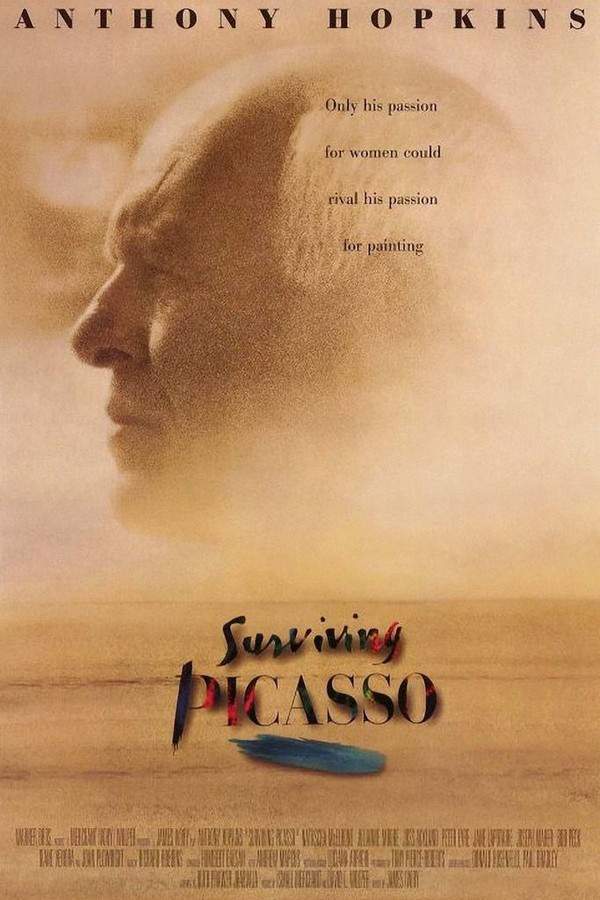
Loving Vincent 2017
Directed by

Dorota Kobiela
Made by

Good Deed Entertainment
Test your knowledge of Loving Vincent with our quiz!
Loving Vincent Plot Summary
Read the complete plot summary and ending explained for Loving Vincent (2017). From turning points to emotional moments, uncover what really happened and why it matters.
One year following the tragic suicide of Vincent van Gogh, postman Joseph Roulin enlists his son Armand to deliver Vincent’s final letter to his brother, Theo. Troubled by the circumstances surrounding Vincent’s death—especially since he had communicated a sense of calm just weeks prior—Roulin is convinced that something is amiss. Reluctantly, Armand sets off for Paris to fulfill his father’s request.
Upon arriving, he meets Père Tanguy, a local art supplier from Montmartre, who reveals a shocking detail: Theo had passed away six months after Vincent. This revelation leads Armand to Auvers-sur-Oise, where he hopes to seek out Dr. Paul Gachet, the doctor who had taken care of Van Gogh following his release from an asylum, shared a passion for art with him, and was present at the funeral. Unfortunately, Dr. Gachet is away on business, so Armand decides to stay at the same inn where Vincent had lodged. There he encounters Adeline Ravoux, the inn’s temporary owner, who expresses her fondness for Van Gogh and her surprise over his untimely death.
Prompted by Adeline, Armand visits a local boatman, who informs him of Van Gogh’s close friendship with Dr. Gachet’s introverted daughter, Marguerite. However, when Armand approaches Marguerite, she adamantly denies any implication that an argument between her father and Vincent could have led to his suicide, expressing anger at the notion.
As Armand delves deeper into the mystery, he begins to suspect a local boy named René Secretan, who reportedly took pleasure in tormenting Vincent and was known to brandish a gun while intoxicated. Dr. Mazery, who had examined Vincent, corroborates Armand’s suspicions, asserting that the gunshot must have been fired from a short distance, effectively ruling out the possibility of suicide. When Armand brings René into question, Marguerite admits that she shared a close, albeit non-romantic, bond with Vincent but remains unconvinced of René’s capability for murder.
Finally, Dr. Gachet returns and agrees to deliver Armand’s letter to Theo’s widow. He confesses to having had an argument with Van Gogh in which Vincent called Gachet a coward for not pursuing his aspirations, leading to a heated discussion that resulted in accusations that Vincent’s very dependence on Theo may have contributed to his worsening health. Gachet suggests this confrontation might have ultimately pushed Vincent to take his own life, believing it would relieve Theo of his burden. After Armand returns home, Roulin receives a letter from Johanna, Theo’s widow, who expresses her gratitude for the return of the letter and includes a missive from Vincent himself, signed, “Your loving Vincent.”
Loving Vincent Timeline
Follow the complete movie timeline of Loving Vincent (2017) with every major event in chronological order. Great for understanding complex plots and story progression.
Vincent's Tragic Death
The timeline begins with the tragic suicide of Vincent van Gogh, a pivotal event that casts a shadow over those connected to him. His death leaves a profound impact on his loved ones, particularly his brother Theo and the local postman Joseph Roulin, who is troubled by the circumstances surrounding it.
Joseph Roulin's Request
Joseph Roulin, the postman, enlists his son Armand to deliver Vincent's final letter to his brother Theo. This request stems from Joseph's belief that Vincent's death was not straightforward, as he had seemed at peace shortly before his passing.
Armand Sets Off
Reluctantly, Armand agrees to his father's request and departs for Paris. He is burdened with doubt and a sense of obligation as he begins his journey to uncover the truth behind Vincent's last days.
Meeting Père Tanguy
After arriving in Paris, Armand meets Père Tanguy, a local art supplier, who discloses that Theo had died six months after Vincent. This revelation deepens Armand's quest for answers, compelling him to travel to Auvers-sur-Oise.
Journey to Auvers-sur-Oise
Armand continues his investigation and sets off for Auvers-sur-Oise, driven by the desire to learn more about Vincent's final days. He seeks out Dr. Paul Gachet, who was close to Vincent during his last moments.
Staying at the Inn
Upon reaching Auvers-sur-Oise, Armand checks into the same inn where Vincent had stayed. There, he meets Adeline Ravoux, the innkeeper, who shares her admiration for Vincent and her shock at his untimely death.
Discovering Marguerite
Adeline informs Armand about Vincent's friendship with Dr. Gachet's daughter, Marguerite. Armand seeks to speak with her, hoping to gain insight into Vincent's state of mind before his death.
Marguerite's Denial
When Armand confronts Marguerite, she angrily dismisses any suggestion that her father and Vincent had a falling out that could have led to suicide. Her strong emotions indicate deeper complexities surrounding Vincent's relationships.
Suspicions Arise
As Armand investigates further, he becomes suspicious of a local boy named René Secretan, who is rumored to have tormented Vincent. This leads to troubling questions about the events leading to Vincent's death.
Dr. Mazery's Insights
Armand consults Dr. Mazery, who had examined Vincent and supports Armand's suspicions. He explains that the gunshot that killed Vincent must have been fired at close range, casting doubt on the idea of suicide.
Marguerite's Connection
Confronted with the evidence, Marguerite reflects on her relationship with Vincent, admitting they shared a deep bond. However, she remains adamant that René was not capable of murder despite the troubling signs.
Dr. Gachet Returns
Finally, Dr. Gachet returns from his business and meets with Armand. Gachet reveals that he had a heated argument with Vincent, where they discussed Vincent's dependency on Theo, which may have contributed to his emotional struggles.
The Confession
Gachet suggests that the argument may have pushed Vincent into despair, believing it was his burden on Theo that caused his demise. This theory leaves Armand and Gachet contemplating the weight of their words on Vincent's life.
Returning Home
After his findings, Armand returns home with a newfound understanding but a heavy heart. He relays what he learned to his father, Joseph, emphasizing the complexity of Vincent's life and relationships.
Letter from Johanna
Upon returning, Joseph Roulin receives a grateful letter from Johanna, Theo's widow. The letter includes a missive from Vincent, signed 'Your loving Vincent,' offering a poignant closure to the events surrounding his troubled life.
Loving Vincent Characters
Explore all characters from Loving Vincent (2017). Get detailed profiles with their roles, arcs, and key relationships explained.
Joseph Roulin (Chris O'Dowd)
Joseph Roulin, the postman, is deeply invested in uncovering the truth behind Vincent's death. His paternal concern drives him to send his son Armand on a quest for clarity. Roulin embodies a sense of loyalty and dedication, reflecting the enduring bond between friends and family in times of grief. His character also highlights the impact of Vincent's legacy on those left behind.
Armand Roulin (Douglas Booth)
Armand Roulin is initially reluctant but evolves into a determined seeker of truth. Tasked with delivering Vincent's final letter, he explores the complexity of his father's friendship with the troubled artist. His journey from indifference to passion reflects a deeper understanding of art and the importance of legacy, making him a pivotal figure in unraveling Vincent's story.
Vincent van Gogh (Robert Gulaczyk)
Vincent van Gogh is portrayed posthumously in 'Loving Vincent,' embodying the spirit of a troubled genius whose struggles with mental illness profoundly influenced his art. His vivid passion for painting contrasts with the tragic circumstances of his life. Vincent's character serves as a poignant reminder of the sacrifices artists often make in pursuit of their craft, eliciting empathy from the audience.
Marguerite Gachet (Saoirse Ronan)
Marguerite Gachet is a strong-willed character who shared a special connection with Vincent. Her defensiveness over her father's actions adds complexity to her portrayal. Marguerite's refusal to entertain certain accusations highlights her loyalty to family and friends, even in the face of tragedy. She represents the emotional ties that bind people to artists and their tormented lives.
Dr. Paul Gachet (Jerome Flynn)
Dr. Paul Gachet is portrayed as both caretaker and confidant to Vincent. His complex relationship with the artist reveals themes of dependency and artistic aspiration. Gachet's confession about his arguments with Vincent sheds light on their fraught friendship, adding depth to the narrative around mental illness and the challenges faced by creative minds.
Loving Vincent Settings
Learn where and when Loving Vincent (2017) takes place. Explore the film’s settings, era, and how they shape the narrative.
Time period
1890
The movie takes place shortly after Vincent van Gogh's tragic suicide in 1890. This period was marked by significant societal changes and the rise of modern art, yet many people, including van Gogh, struggled with personal and professional challenges. The tension and emotions surrounding his death reflect a broader conflict in the art community regarding mental health and artistic validation.
Location
Paris, Auvers-sur-Oise, Montmartre, France
Paris is a renowned city celebrated for its rich artistic heritage and historical significance. It is home to famous landmarks and art districts, such as Montmartre, where many artists, including Vincent van Gogh, lived and worked. Auvers-sur-Oise, a picturesque commune just outside Paris, is known for its connection to van Gogh's final days, making it a site of profound historical importance in the art world.
Loving Vincent Themes
Discover the main themes in Loving Vincent (2017). Analyze the deeper meanings, emotional layers, and social commentary behind the film.
🖌️
Artistic Legacy
The theme of artistic legacy is central to 'Loving Vincent,' highlighting how van Gogh's life and work continue to resonate long after his death. The film explores how art can evoke deep emotions and communicate stories, serving as a bridge between the past and present. Through Armand's quest, the film examines how van Gogh's creations and experiences shape the perceptions and memories of those who loved him.
🕵️♂️
Mystery
Mystery unfolds as Armand investigates the circumstances surrounding Vincent's death. His journey reveals hidden truths and unanswered questions about artistic genius, mental health, and the impact of relationships. The suspenseful exploration of van Gogh's last days adds a layer of intrigue, prompting viewers to reflect on the complexity of his life and the events leading up to his demise.
💔
Tragedy
Tragedy permeates the film, as it addresses the tragic events surrounding van Gogh's life and death. The emotional weight borne by Armand and other characters highlights the profound loss felt by those close to Vincent. The narrative explores themes of despair, alienation, and the often-overlooked struggles of artists, painting a poignant picture of mental health challenges in the artistic community.

Coming soon on iOS and Android
The Plot Explained Mobile App
From blockbusters to hidden gems — dive into movie stories anytime, anywhere. Save your favorites, discover plots faster, and never miss a twist again.
Sign up to be the first to know when we launch. Your email stays private — always.
Loving Vincent Spoiler-Free Summary
Discover the spoiler-free summary of Loving Vincent (2017). Get a concise overview without any spoilers.
In the tranquil village of Auvers‑sur‑Oise beneath the endless French sky, the world feels brushed in the vivid hues of a century‑old canvas. The air hums with the rustle of wheat fields, the clatter of horse‑drawn carriages, and the whispered reverence for an artist whose work still burns bright in every tavern and studio. The film moves through this landscape with a painter’s eye, each frame a living oil‑painting that drifts between the ordinary and the extraordinary, inviting the viewer to linger on light, colour, and the quiet melancholy that settles over a town still echoing with unspoken questions.
At the heart of the story is Joseph Roulin, a devoted postman whose daily rounds have become a conduit for the intimate thoughts of the town’s artists. When a final, unsent letter arrives for the brother of the late master, Roulin’s curiosity ignites a personal quest, and he turns to his son Armand—a reluctant but earnest young man eager to prove himself. Their bond, marked by gentle banter and a shared sense of duty, becomes the emotional anchor as they step beyond routine delivery into a deeper search for understanding.
Their journey carries them through the bustling streets of Paris and back into the rustic inn that once sheltered the painter. Along the way they meet figures who once brushed shoulders with the genius—a kindly art supplier, a warm‑hearted innkeeper, and a thoughtful doctor whose own devotion to colour mirrors the artist’s. Each encounter adds a subtle brushstroke to the portrait of a life lived on the edge of brilliance, offering glimpses of the community that loved, debated, and was forever changed by his presence.
Through a uniquely visual language that lets the audience feel the texture of each brush‑stroke, the film settles into a reflective, almost reverent tone. It explores how memory, art, and unanswered questions intertwine, leaving a lingering sense of wonder about the stories whispered in the margins of a masterpiece.
Can’t find your movie? Request a summary here.
Movies with Similar Twists and Themes
Uncover films that echo the narrative beats, emotional arcs, or dramatic twists of the one you're exploring. These recommendations are handpicked based on story depth, thematic resonance, and spoiler-worthy moments — perfect for fans who crave more of the same intrigue.
Featured on this page

What's After the Movie?
Not sure whether to stay after the credits? Find out!
Explore Our Movie Platform
New Movie Releases (2026)
Famous Movie Actors
Top Film Production Studios
Movie Plot Summaries & Endings
Major Movie Awards & Winners
Best Concert Films & Music Documentaries
Movie Collections and Curated Lists
© 2026 What's After the Movie. All rights reserved.









